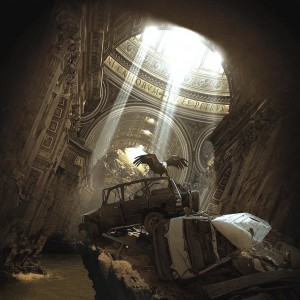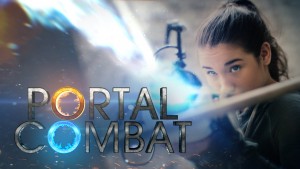The difference between works of fiction that are primarily about action, and those that are in the main concerned with relationships. There is neither ‘good’ or ‘bad’ about either one, merely personal taste. But get them straight and save yourself a lot of confusion and grief. And they key is external events, or lack of them.
 By Michal Karcz see his website michalkarcz.com
By Michal Karcz see his website michalkarcz.com
If you wish to write a narrative primarily about personalities and their clashes, internal motives, misapprehensions, misdirections, failed love, greed and selfishness and all the grimy depths to which people can sink, then your background has to be fairly stable so you can do this. Here is excerpts from David Foster Wallace’s review of John Updike’s Toward The End of Time, a novel which completely ignored the above.
(From Consider the Lobster, Wallace)
Toward the End of Time is being marketed by its publisher as an ambitious departure for Updike, his foray into the futuristic-dystopian tradition of Huxley and Ballard and soft sci-fi. The year is AD 2020…A Sino-American nuclear war has killed millions and ended centralized government as we know it…local toughs charge fees to protect the well-to-do from other toughs…the Midwest is depopulated…there are tiny but rapacious ‘metallobioforms’ that go around eating electricity and the occasional human. Mexico has reappropriated the US Southwest…(but) What 95% of Toward the End of Time actually consists of is the (the protagonist) Ben Turnbull describing the predominate flora (over and overagain as each season passes) and his brittle, castrating wife Gloria and remembering the ex-wife who divorced him for adultery, and rhapsodizing about a young prostitute he moves into the house when Gloria’s away on a trip. It’s also got a lot of pages of Turnbull brooding about senescence, mortality, and the tragedy of the human condition…
In case that summary sounds too harsh, here is some hard statistical evidence of just how much a ‘departure’ from Updike’s regular MO this novel really is;
Total # of pages about Sino-American war —causes duration and casualties —0.75
total # of pages about deadly mutant metallobioforms —1.5
total # of pages about flora around Turnbull’s New England home plus fauna, weather, and how his ocean view looks in different seasons —-86
total # of pages about Mexican repossession of US Southwest —0.1
total# of pages about Ben Turnbull’s penis and his various thoughts and feelings about it —10.5
total # of pages about what life’s like in Boston without municipal services or police, plus whether the war’s nuclear exchanges have causes fallout or radiation sickness —0.0
total # of pages about golf —15
And so on. Thank God for Wallace and all he gave us in his short life-span.
So for today, I will merely note that for your sci fi novel, your dystopian novel, which deals with robust external events, should have a balance between narrative summary, and direct scenes with dialogue, direct scenes which are narratives, and description. I’ll go into that within the week.
There are also the questions of info-dumps and plotting.


